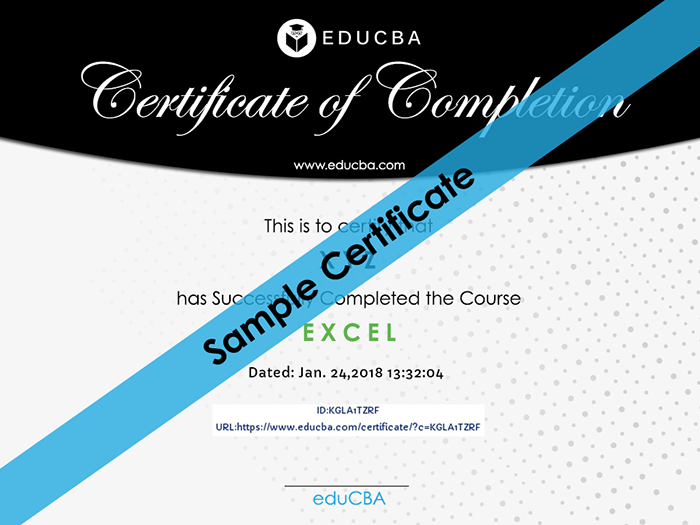- Duration / Course length: Upto 6 Hours Start now
- Certificates:
- Course delivery: This course is delivered in video format
Course details
In 1970, two programmers, Brian Kernighan and Dennis Ritchie, invented a new language calledC. named because its predecessor Language was called B and The B programming language was developed by Ken Thompson in Bell Labs. C was designed with setting goal of operating systems. C language was simple, flexible and soon was used for many different types of became one of the most popular programming languages in the world but C language had one major problem. C was a procedure-oriented language. This meant that in writing a typical C program, the programmer would start by describing the data and then write procedures to manipulate that data. Programmers eventually discovered that it made a program clearer and easier to understand if they were able to take a large data and group together with the operations that worked on that data. Such a grouping is called as class. Write programs by using classes are known as object-oriented design (OOD). Bjarne Stroustrup started working in 1980 on a new language, called ”C with ; This Language improved on C by adding a number of new features, the most important of which was Classes. This new language was improved, augmented, and finally became C++. C++ owes its success to the fact that it allows the programmer to organize and process Information more effectively than most other languages. Also, it builds on the work already done with the C language. In fact, most C programs can be transformed into C++ programs with little trouble. These programs usually don’t use all the new features of C++, but they do work. In this way, C++ allows programmers to build on an existing base of C code Following are Some Feature of C++ C++ is C. C++ supports (almost) all the features of C. Like C, C++ allows programmers to manage the memory directly, to develop efficient programs. C++ is Object Oriented Programming Language. C++ enhances the procedural-oriented C language with the object-oriented extension. The Object Oriented extension facilitates design, reuse and maintenance for complex software. C++ introduces generic programming, via the so-called template. You can use these templates in our application. C++ provides a huge set of reusable standard libraries, in particular, the Standard Template Library (STL). 1) Classes: classes are used to create user defined data types. In other words the class is collection of data member and member function. 2) The objects are the instances of classes. 2) Inheritance: Inheritance use to code reusability. in inheritance we use property of another class in other class 3) Data Abstraction and Encapsulation: Encapsulation means binding data and function in other words wrapping up of data in single entity is known as Encapsulation. This means the data is not accessible to outside world. Abstraction can be defined as the act of representing essential features hiding background details. 4) Polymorphism: it particular function called depends on object type. 5) Dynamic Binding: It means that the linking of a procedure call to code to be executed in response to the call. A function call depends on polymorphic reference depends on the dynamic type that reference. 6) Message Passing: An object-oriented program consists of the set of objects that communicate with each other by functions. Why C++Programming training course? C/C++ compilers are known to produce more efficient machine code than any other compilers There are billions of lines of code already written in C++. Programmer can reuse the huge code. Well defined ISO standard that is updated by a group of experts from time to time Supported on most platforms, from microcontrollers (actually C language) to cell phones. C++ used as a common language between programmers who work in different languages,. Base for Object Oriented Programming Language such as java C#. C++ mostly used in system software, device drivers, application software and entertainment software such as video games. Understanding memory allocation and deallocation and pointer usage. Creating your own class hierarchy instead of using pre-packaged libraries from your language vendor. Learn how to use templates and generic programming principles in C++ programming. Many Collages and university starts the computer science curriculum with C++ programming courses so this course is useful for student in IT related ; Updated on 16 February, 2023Job roles this course is suitable for:
Junior Software Developer , senior software developer , assistant software developerAbout eduCBA
An initiative by IIT IIM Graduates, eduCBA is a leading global provider of skill based education addressing the needs 500,000+ members across 40+ Countries. Our unique step-by-step, online learning model along with amazing 5421 courses prepared by top notch professionals from the Industry help participants achieve their goals successfully. All our training programs are Job oriented skill based programs demanded by the Industry. At eduCBA, it is a matter of pride to us to make job oriented hands on courses available to anyone, any time and anywhere. Therefore we ensure that you can enroll 24 hours a day, seven days a week, 365 days a year. Learn at a time and place, and pace that is of your choice. Plan your study to suit your convenience and schedule.
What we do : We teach you real world skills on everything from Investment Banking to Programming to Project Management to Design – and much, much more.
How we do it : Through online video training. Our high-quality, skill-based 5421 video training programs help members achieve their goals successfully.





